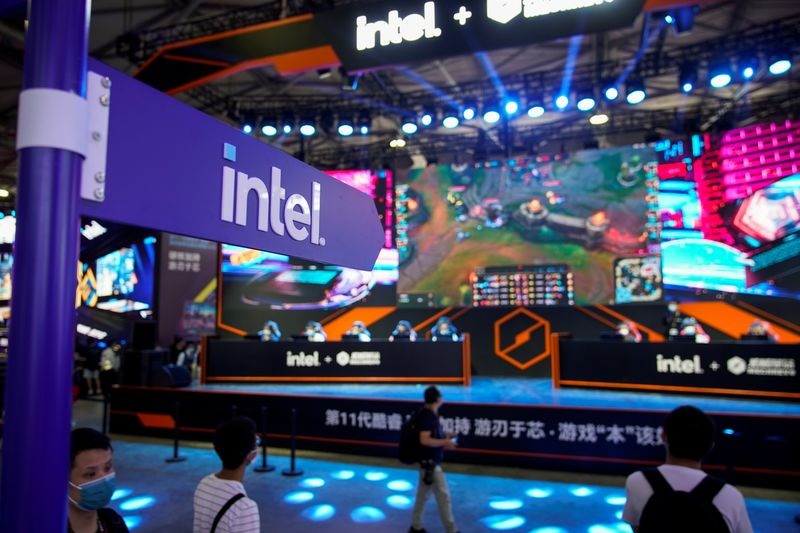© Reuters
Intel (NASDAQ:), the renowned chip manufacturer, is setting its sights on the rapidly growing Artificial Intelligence (AI) market. The company announced its strategic plan on Tuesday, aiming to position itself as a key player in the development of AI-enabled personal computers. This vision aligns with forecasts from executives at Dell Technologies (NYSE:) and HP Inc (NYSE:)., who anticipate the arrival of AI-integrated laptops by 2024.
During a recent developer event in San Jose, Intel’s CEO Pat Gelsinger unveiled plans for “the AI PC.” This concept is intended to foster widespread adoption of AI technology. At the heart of this initiative is the Intel Core Ultra processor, code-named Meter Lake, which is expected to start shipping on December 14th. The new processor will be Intel’s first to include an integrated neutral processing unit designed for power-efficient AI acceleration and local inference.
The competition for providing chips for large language model development and AI inference is intensifying. Nvidia (NASDAQ:) has carved out a solid position in the market with its graphics processing units (GPUs) used in data centers for creating AI models. However, both Intel and Arm, which recently went public, are seeking opportunities with central processing units (CPUs). These CPUs could potentially run AI inference applications on laptops and mobile devices, a market segment that Nvidia’s high-end GPUs can’t cater to due to their size and cost.
The incorporation of local AI capabilities into laptops could lead to a significant transformation in the personal computer industry. It would allow consumers to use generative AI applications locally without the need for a cloud connection. Gelsinger expects this shift to be a major milestone in technological innovation. He sees these new PCs running software like Microsoft (NASDAQ:)’s Copilot to handle AI tasks for personal productivity applications among others.
In addition to its plans for AI-integrated PCs, Intel also revealed its intention to build a large AI supercomputer. This machine would be constructed on Intel Xeon processors and Intel Gaudi2 AI hardware accelerators. Stability.AI, a large language model, is projected to be the anchor customer for this supercomputer.
Despite these ambitious plans, Intel’s shares experienced a 4.4% drop on Tuesday.
This article was generated with the support of AI and reviewed by an editor. For more information see our T&C.
Read the full article here





